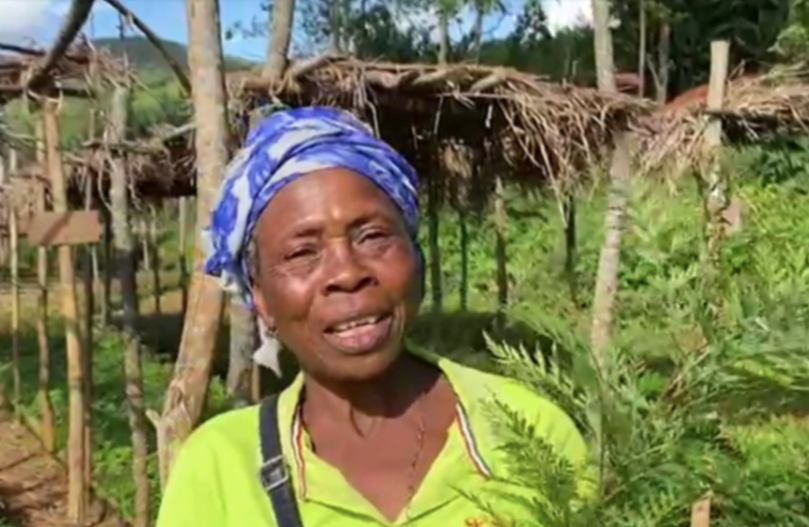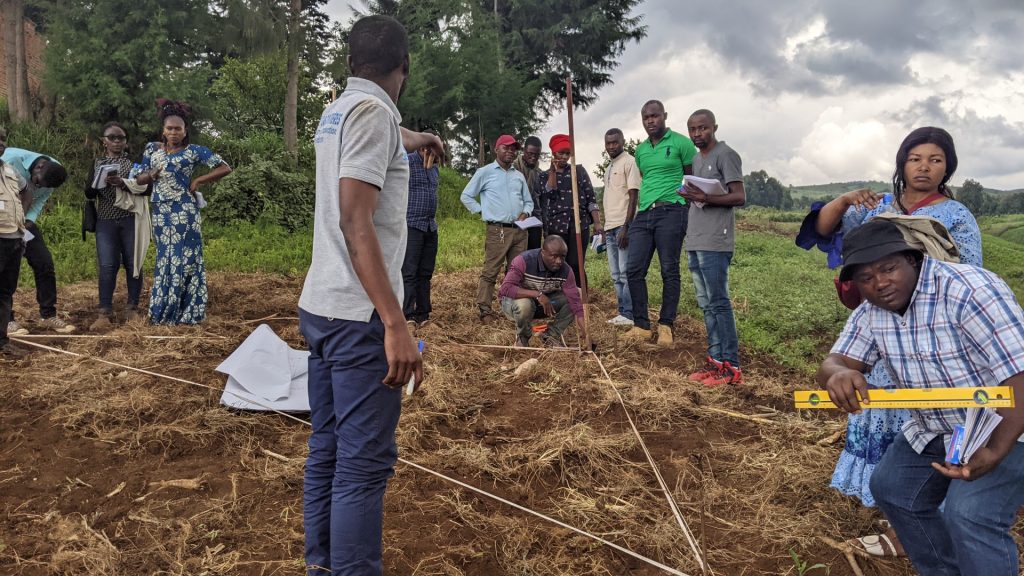The Restoration Initiative (TRI) in DRC is working to bring positive change, by helping stakeholders to design and put into place restoration interventions that meet the needs of local communities and landscapes.
One way the TRI project in DRC is working is by supporting the development of a Provincial Forest and Landscape Restoration Strategy. This strategy lays out priority sites and approaches for restoration, including assisted natural regeneration, agroforestry, and protection of the watershed through anti soil-erosion plantings and other measures.
Our project team interviewed a beneficiary of the TRI Project in Kashanja Village, located in Walungu Territory, a territory located within the South Kivu Province in the eastern part of the Democratic Republic of the Congo (DRC)
Mwamiriza Angeline, a female member of a local development initiative in Kashanja village and a member of club Dimitra in the Democratic Republic of Congo (DRC) tells her story.

We work for the development of our communities through the planting and installation of nurseries for the production of seedlings of forest and agro-forestry species. One of our objectives through this program is the empowerment of rural women. In the context of environmental protection and with the technical support of our partners (FAO) and APES), our capacities were built on the production of tree seedlings”, said Angeline.
She continued, “Our goal is to reforest the bare hills over there (pointing to the hills in the TRI project site), fertilise our soils, combat erosion, and produce wood / timbre products for our own needs. Our association also has an objective of mutual aid. We carry out income-generating activities such as breeding guinea pigs which was initiated through the support of Village Savings and Loans Association (VSLA). This allows us to provide assistance to one another in the community in times of need. I can therefore conclude that from this small initiative of producing seedlings, our group has been able to promote agricultural activities, and from this, we are now able to address the answers to the economic and social questions of our members here in our village Kashanja, in the chiefdom of Ngweshe, in the Teritory of Walungu, Province of South Kivu, in the Democratic Republic of Congo”.
She spoke on their challenges, “Initially we encountered difficulties on the availability of forest seeds for planting. As a solution, we now collect seeds locally from trees that we really like and that are of interest to our members. This activity has helped us and is of great interest to members of our community in this village”.
Addressing land degradation is a priority for South Kivu, the TRI project is supporting government and community partners in this effort in several ways including the development of a provincial-level strategy for forest landscape restoration (FLR) in the chiefdoms of Kabaré and Ngweshe.
